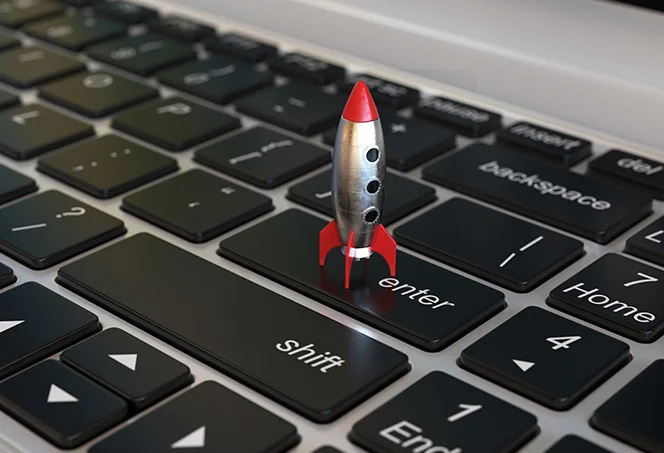Are you tired of waiting minutes for your computer to open a single program? Do you experience constant delays when typing, playing games, or working? If so, it’s time to take action and speed up your computer. There are many simple steps you can take to improve your computer’s performance and user experience. From clearing out old files to using specialized software and hardware, here are five ways that will help speed up your computer in no time.
Delete Unnecessary Files
If your computer is running slowly, one of the first things you should do is check for any unnecessary files that may be taking up space on your hard drive. Go through your files and folders, and delete anything that you no longer need. This includes temporary files, old backups, and anything else that you don’t use regularly. Once you’ve deleted these unnecessary files, your computer should have more space available and run more smoothly.
Defragment Your Hard Drive
If your computer is running slowly, one of the first things you can do to speed it up is to defragment your hard drive. Over time, as files are added and deleted from your hard drive, the data becomes scattered and fragmented. This can slow down your computer because the hard drive has to work harder to find and piece together the data.
Defragmenting your hard drive essentially reorganizes the data on your hard drive so that it is stored in a contiguous area. This can give your computer a significant performance boost because the hard drive doesn’t have to work as hard to find and retrieve data.
There are a few different ways to defragment your hard drive. Windows users can use the built-in Disk Defragmenter tool, while Mac users can use a third-party tool like iDefrag.
To use Disk Defragmenter in Windows, open the Start menu and type “defrag” into the search box. Select “Disk Defragmenter” from the results. In the Disk Defragmenter window, select the disk you want to defragment and click “Analyze disk” to see how fragmented it is. If the disk is more than 10% fragmented, click “Defragment disk” to start the process.
This is an advanced step so we recomment get it done from a computer repairs service near your area.
For Macs, there are a few different options for third-party defragmentation tools. One popular option is
Clean Up Your Desktop
Assuming you have a PC, here are some tips to help clean up your desktop and speed up your computer:
1. Uninstall any programs you don’t use – Go to Control Panel > Programs and Features, and uninstall any programs you don’t use. This frees up space on your hard drive and can improve performance.
2. Delete temporary files – Temporary files are created by programs when they’re running. They’re not necessary once the program has closed, so you can delete them to free up space. To do this in Windows, go to Start > All Programs > Accessories > System Tools > Disk Cleanup.
3. Empty your Recycle Bin – The Recycle Bin is where deleted files go until you empty it. If it’s full, it can slow down your computer. To empty it, right-click on the Recycle Bin icon on your desktop and select Empty Recycle Bin.
4. Defragment your hard drive – Over time, files can become scattered across your hard drive, which can make your computer run slower when accessing them. Defragmenting puts all the files back in order so that they can be accessed more quickly. To defragment in Windows, go to Start > All Programs > Accessories > System Tools > Disk Defragmenter.
Optimize Your Startup Programs
If you’re looking to speed up your computer, one of the best places to start is by optimizing your startup programs. This will ensure that only the absolutely necessary programs are running when you start up your computer, freeing up valuable resources.
To do this, open up your Task Manager (press Ctrl+Shift+Esc on your keyboard) and click on the “Startup” tab. Here, you’ll see a list of all the programs that run automatically when you start up your computer.
Take a look through the list and disable any programs that you don’t need to run automatically. For example, if you don’t use iTunes regularly, you can disable its automatic startup program. Once you’ve disabled unnecessary programs, click “OK” to save your changes.
You should notice a significant speed boost after taking this step!
Close Background Programs
One of the best ways to speed up your computer is to close any background programs that you are not using. These programs can take up valuable resources, and by closing them, you can free up those resources for other tasks. To close a program, right-click its icon in the taskbar and select End Task. If you’re not sure what a program is or whether you need it running, do a quick search online for its name.





